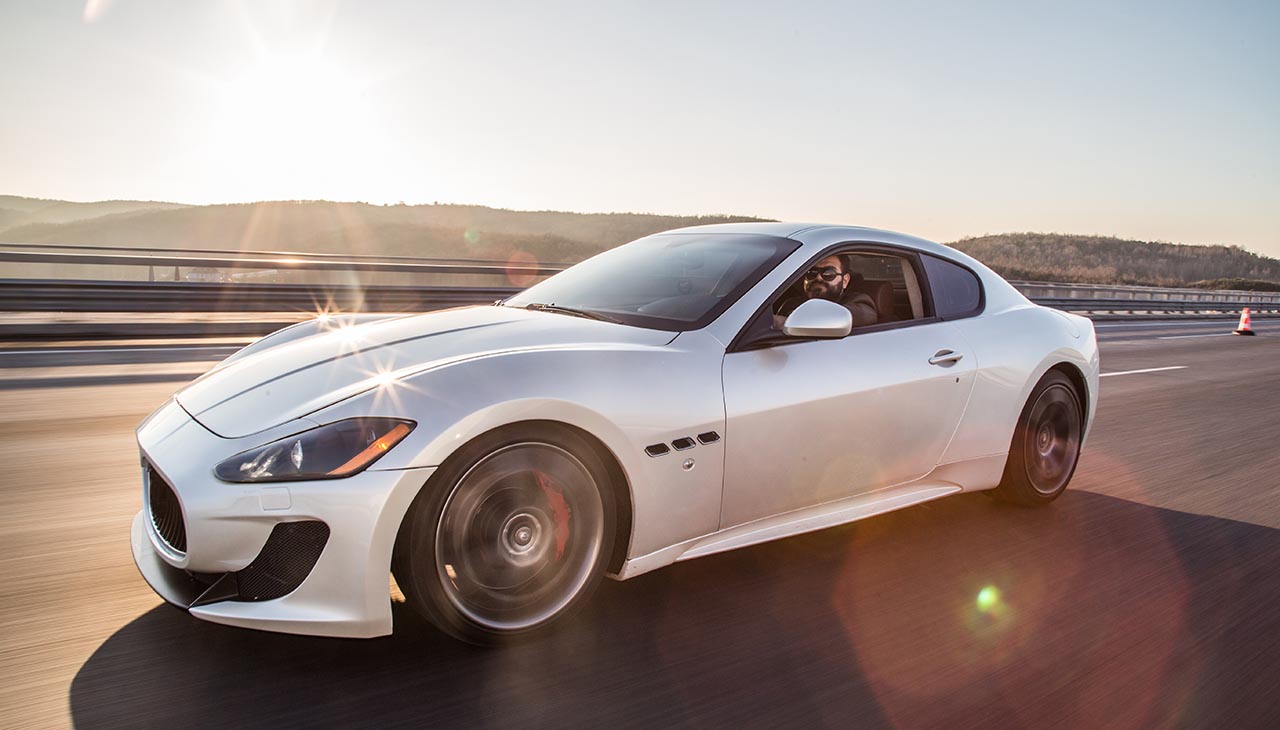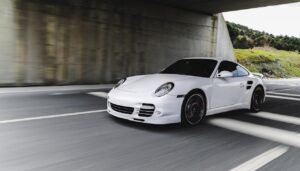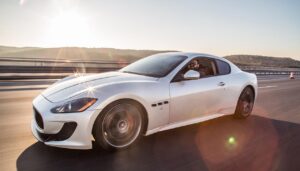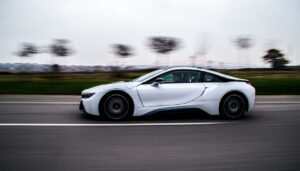
The 2023 Porsche Taycan emerges as a striking competitor in the electric car market. With its unique blend of speed, luxury, and sustainability, it is poised to redefine standards in the electric vehicle (EV) segment. In this article, we will explore how the Taycan measures up against other EVs in the market, delving into its key features, performance metrics, and overall driving experience. This comparison aims to provide potential buyers with an insightful perspective, assisting them in making an informed choice.
Key Features of the Porsche Taycan
Exterior Design
The Porsche Taycan’s exterior design embodies a fusion of classic Porsche styling cues and modern aesthetics. Its streamlined silhouette, aerodynamic contours, and sleek LED headlights lend it a distinctive, futuristic appeal. The car’s low-slung frame and pronounced wheel arches reinforce its sporty persona, while its unique four-point daytime running lights and dynamic light strip at the rear contribute to a distinctive visual identity.
Interior Design
Inside, the Taycan boasts an ultra-modern, luxurious cabin that beautifully marries form and function. The cockpit is driver-focused, featuring a fully digital and customizable instrument cluster. High-quality materials, meticulous craftsmanship, and innovative design elements, such as the floating center console and the seamless integration of infotainment and climate controls, create an environment of sophisticated comfort and elegance.
Technology and Infotainment System
The Taycan’s technology and infotainment system are top-notch, ensuring a highly connected and intuitive driving experience. The centerpiece is the PCM (Porsche Communication Management) system, which includes a high-resolution 10.9-inch touchscreen display and an optional passenger display. This system provides access to navigation, media, communication, and vehicle settings. Integrated Apple CarPlay and Android Auto ensure seamless smartphone connectivity, while the optional Burmester High-End Surround Sound System delivers phenomenal audio quality.
Performance Metrics
Speed and Acceleration
The 2023 Porsche Taycan is a paragon of electric performance, boasting breathtaking speed and swift acceleration. Depending on the version, the Taycan can sprint from 0 to 60 mph in as little as 2.6 seconds, rivaling some of the fastest supercars. Its advanced electric powertrain provides instant torque delivery, resulting in exhilarating acceleration from a standstill and impressive overtaking power on the highway.
Battery Life and Charging
In terms of battery life, the Taycan offers a competitive range that aligns with leading EVs in the market. The EPA rates its range between 199-227 miles depending on the model, sufficient for most daily driving requirements. As for charging, the Taycan supports fast charging that can replenish up to 80% of the battery in just 22.5 minutes under optimal conditions, minimizing downtime and enhancing convenience for long-distance travels.
Handling and Ride Comfort
Porsche’s heritage as a sports car manufacturer shines through in the Taycan’s handling characteristics. The car’s low center of gravity, precise steering, and advanced suspension systems collectively contribute to a dynamic, yet composed ride. Furthermore, the Taycan’s adaptive air suspension and optional Porsche Dynamic Chassis Control (PDCC) ensure a perfect balance between comfort and performance, making both spirited drives and relaxed cruising equally enjoyable.
Comparison with other EVs
Tesla Model S
The Tesla Model S, a pioneer in the EV segment, is a worthy competitor to the Porsche Taycan. While the Model S excels in terms of acceleration and long-range capabilities (EPA estimates range exceeding 390 miles), it falls slightly short in terms of luxury and build quality. The Model S interior, despite its minimalist appeal and advanced tech features, does not quite match the craftsmanship and opulence observed in the Taycan’s cabin.
Audi e-Tron GT
The Audi e-Tron GT, another German powerhouse, offers stiff competition with its dynamic styling, impressive performance, and luxurious interiors. The e-Tron GT matches the Taycan’s performance and shares its 800-volt architecture, enabling rapid charging. However, the Taycan differentiates itself with its sportier handling and a more driver-focused cabin, aligning with Porsche’s sports car heritage.
Mercedes-Benz EQS
The Mercedes-Benz EQS is the luxury automaker’s flagship EV, designed to compete with the best in the segment. With its focus on luxury and comfort, the EQS features a lavish interior and innovative tech features, like the MBUX Hyperscreen. However, in terms of performance, the EQS doesn’t quite match the Taycan’s sporty characteristics and exhilarating acceleration. Its emphasis is more on providing a serene, comfortable ride than on outright speed and handling prowess.
Conclusion
The 2023 Porsche Taycan emerges as a strong contender in the competitive EV market, delivering an impressive blend of performance, design, and technology. Its exterior design captures a distinctive, futuristic appeal, while the interior exudes sophisticated comfort and elegance. The vehicle’s technology and infotainment system, centered around the PCM system, ensure a highly connected and intuitive driving experience. In terms of performance, the Taycan offers breathtaking speed and swift acceleration, competitive battery range and fast charging capabilities, and dynamic handling that beautifully balances comfort and performance. When compared to other EVs such as the Tesla Model S, Audi e-Tron GT, and Mercedes-Benz EQS, the Taycan holds its own, particularly excelling in areas of luxury, craftsmanship, and sporty handling.





